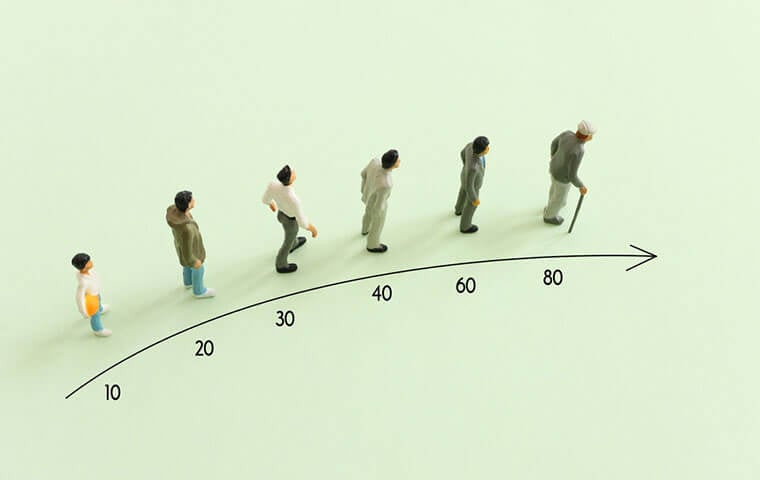 Generation Z (born in the late 90s, early aughts) was notably more likely to cite “feeling isolated and alone” and “lack of affordable housing.” Image: tomertu/Shutterstock.com
By: FEDweek Staff
Generation Z (born in the late 90s, early aughts) was notably more likely to cite “feeling isolated and alone” and “lack of affordable housing.” Image: tomertu/Shutterstock.com
By: FEDweek StaffThose close to retirement, or already are in it, view it differently than younger workers in key ways, including regarding expectations of age at retirement and reasons for possibly wanting to continue working at least part-time, a survey has found.
The survey by the TransAmerica Center for Retirement Studies focused on Baby Boomers, born 1946 to 1964; Generation X, born 1965 to 1980; Millennials, born 1981 to 1996; and Generation Z, born since 1997.
“More than half of Baby Boomer workers (57%) expect to retire at age 70-plus or do not plan to retire, followed by Generation X (39%), Generation Z (33%), and Millennials (31%). Younger generations including Generation Z and Millennials are more likely than Generation X and Baby Boomers to expect to retire before age 65 (42%, 36%, 23%, 7%, respectively),” it said.
Expectations of continued working in retirement fell within a narrow range by generation of 53 percent of Boomers to 56 percent in Generation X, while the two younger generations were somewhat more likely to expect to work full-time.
The two older generations, though, were more likely to cite financial reasons for expectations of continuing to work, especially due to expectations of needing the income. The two younger ones were more concerned about the future of Social Security and employer-provided retirement benefits.
Similarly, expectations of wanting to continue to work for healthy-aging reasons fell within a narrow range of 75 percent for Generation X to 80 percent for Generation Z, but specifics differed. Baby Boomers and Generation X were more likely than the younger generations to cite desire to remain active, “keep my brain alert”, and because they “enjoy what I do.”
The two younger generations in contrast were more likely to cite desire for personal development as a reason to continue working.
There were also differences regarding retirement fears:
For Boomers, it was “declining health that requires long-term care”—notably higher than among the other generations.
For Generation X, it was “Social Security will be reduced or cease to exist”; and for Millennials and for Generation Z, it was “outliving my savings and investments.”
Generation Z meanwhile was notably more likely to cite “feeling isolated and alone” and “lack of affordable housing.”
Deferred Resignation Periods about to End for Many; Overall 12% Drop
Retirement Surge Likely as Deferred Resignation Periods End
Senate Rejects Bills to Defer Shutdown; Familiar Process Lies Just Ahead
Senate Bill Would Override Trump Orders against Unions
Report Describes Impact of Shutdown on Employees, Agencies
TSP Adds Detail to Upcoming Roth Conversion Feature
See also,
Legal: How to Challenge a Federal Reduction in Force (RIF) in 2025
How to Handle Taxes Owed on TSP Roth Conversions? Use a Ladder
The Best Ages for Federal Employees to Retire
Best States to Retire for Federal Retirees: 2025
Retention Standing, ‘Bump and Retreat’ and More: Report Outlines RIF Process
FERS Retirement Guide 2025 – Your Roadmap to Maximizing Federal Retirement Benefits

